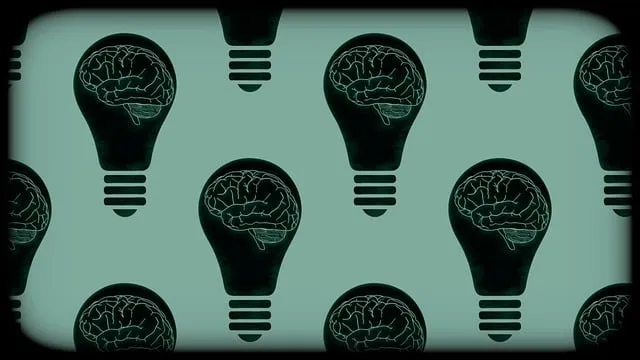The Littleton Kaiser mental health programs offer comprehensive care and evidence-based solutions, reducing stigma and empowering individuals with coping strategies. Their holistic approach emphasizes prevention, crisis intervention, and emotional well-being promotion, aiming to revolutionize mental healthcare accessibility and outcomes. Advocacy efforts, including grassroots organizing and coalition building, drive policy changes, addressing depression prevention, burnout reduction, and stigma removal. Measuring success through robust methodologies is crucial for understanding effective strategies and improving mental health policy initiatives on a broader scale.
Mental health policy analysis and advocacy are vital components in fostering comprehensive care systems. This article delves into the intricate world of mental health governance, exploring its profound impact on individual well-being and societal progress. We present an in-depth analysis of the Littleton Kaiser mental health programs, known for their innovative approaches. By examining effective interventions and advocacy strategies, we aim to guide policy changes that enhance access to quality care. Additionally, we discuss evaluation methods and future directions, emphasizing the importance of continuous improvement in this dynamic field.
- Understanding Mental Health Policy and Its Impact
- The Littleton Kaiser Programs: An Overview
- Analyzing Effective Mental Health Interventions
- Advocacy Strategies for Policy Change
- Measuring Success: Evaluation and Future Directions
Understanding Mental Health Policy and Its Impact

Mental health policy is a crucial framework that shapes how societies address and support individual well-being. It encompasses a range of initiatives, from funding and access to services to legislative protections and public education. Understanding these policies is essential for creating positive change, as they directly impact the availability and quality of mental health care. In the United States, programs like those offered by Littleton Kaiser have played a significant role in improving mental health outcomes, providing evidence-based treatments and resources to diverse populations.
Mental Health Awareness and stress management workshops are integral components of these policies, aiming to reduce stigma and empower individuals with coping strategies. Additionally, advocacy for mental health often involves pushing for Confidence Boosting initiatives that can prevent and mitigate the effects of common mental health challenges. By analyzing existing policies and advocating for evidence-based practices, organizations like Littleton Kaiser contribute to a more comprehensive understanding of mental health needs, ultimately shaping a healthier and more supportive society.
The Littleton Kaiser Programs: An Overview

The Littleton Kaiser mental health programs stand as beacon of hope and comprehensive care in the realm of psychological well-being. Designed to address a wide array of mental health concerns, these programs offer tailored solutions for individuals navigating through challenging times. The focus is on both crisis intervention guidance and emotional well-being promotion techniques, ensuring that every person receives the necessary tools to manage stress, anxiety, and trauma.
These innovative initiatives don’t stop at treatment; they also prioritize prevention and early intervention. By providing accessible Trauma Support Services, the programs aim to foster resilient communities where mental health is prioritized. The holistic approach, integrated within the structure of these services, caters to diverse populations, ultimately aiming to revolutionize mental healthcare accessibility and outcomes.
Analyzing Effective Mental Health Interventions

Mental health policy analysis often revolves around evaluating and understanding the effectiveness of various interventions. One notable program, the Littleton Kaiser mental health initiatives, has gained attention for its holistic approach. These programs emphasize the integration of Self-Awareness Exercises, Compassion Cultivation Practices, and Coping Skills Development as key components of treatment. By fostering self-awareness and compassion, individuals can better navigate their emotions and build resilience, leading to improved mental well-being.
Through rigorous analysis, researchers have identified these practices as not only beneficial but crucial in enhancing traditional therapy methods. The success of such programs suggests a shift towards more comprehensive mental health support, where evidence-based strategies are tailored to individual needs. This approach aligns with the growing recognition of mental health as a fundamental aspect of overall well-being, necessitating ongoing advocacy for accessible and effective services.
Advocacy Strategies for Policy Change

Advocacy plays a pivotal role in shaping mental health policies and driving transformative changes. Organizations like Littleton Kaiser Mental Health Programs have successfully employed various strategies to lobby for policy reforms, addressing critical areas such as Depression Prevention, Burnout Prevention, and Mental Illness Stigma Reduction Efforts. One effective approach is grassroots organizing, where they mobilize communities affected by mental health issues to raise awareness and pressure decision-makers. This involves hosting educational events, sharing personal stories, and leveraging social media to create a collective voice that demands evidence-based solutions.
Another powerful tool is coalition building, where advocacy groups unite their efforts with like-minded organizations to amplify their message. By collaborating with mental health professionals, researchers, and community leaders, these coalitions can effectively navigate policy landscapes and propose comprehensive reforms. They lobby for increased funding for mental health services, improved access to care, and the integration of mental wellness programs into mainstream healthcare systems, ultimately fostering a more inclusive and supportive societal environment.
Measuring Success: Evaluation and Future Directions

Measuring success in mental health policy initiatives is paramount to understanding what works and where improvements are needed. The impact of programs like Littleton Kaiser’s mental health interventions should be evaluated using robust, evidence-based methodologies. This includes assessing both qualitative and quantitative outcomes, such as reductions in symptoms, improved access to care, and enhanced quality of life for individuals impacted by mental illness.
Looking ahead, the future of mental health policy advocacy lies in integrated approaches that combine established strategies like Social Skills Training with innovative solutions like Burnout Prevention initiatives. Additionally, leveraging digital platforms for Mental Wellness Podcast Series Production can expand reach and make evidence-based information more accessible to diverse populations, fostering a culture of mental wellness on a broader scale.
Mental health policy analysis and advocacy are essential components in creating a supportive societal landscape. The article has explored various facets, from comprehending the profound impact of mental health policies to analyzing successful interventions. Highlighting the success of initiatives like the Littleton Kaiser Programs demonstrates the potential for transformative change. By adopting effective advocacy strategies, we can drive policy shifts that prioritize mental well-being. Moving forward, rigorous evaluation and a focus on future directions will ensure continuous improvement in mental health care accessibility and quality.






